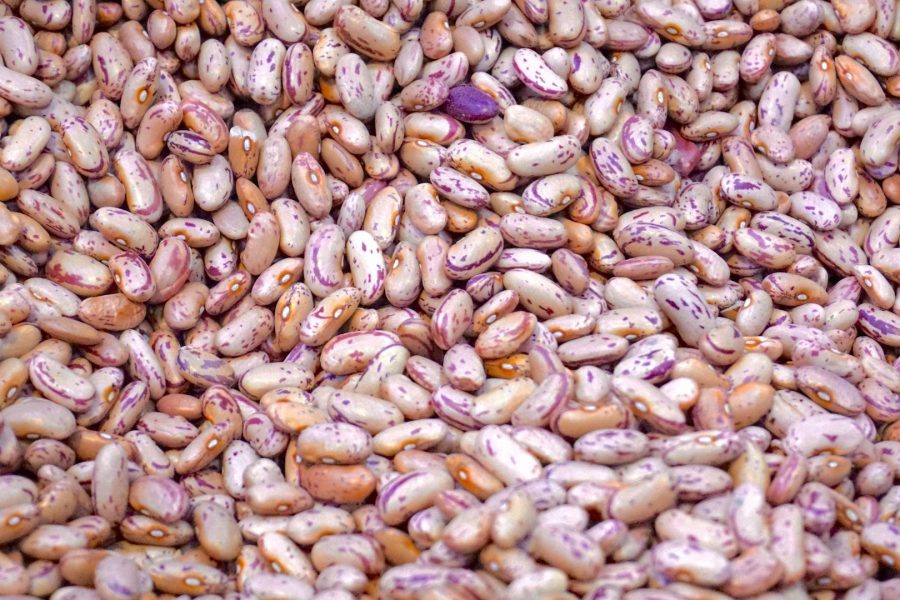Mobile Aggregation Centres (MACs) have emerged as a flexible, transparent and cost-efficient solution for Smart Logistics Services (SLS) to source from scattered smallholder beans farmers. These aggregation and service centres address the company’s high aggregation costs and simultaneously improve farmers access to nearby markets and post-harvest services. Before coming up with the innovation, IDH worked on a Service Delivery Model Analysis for SLS that had identified high operating and financing costs were a constraint and a strong reliance on stable commercial revenues required more consistent supply.
Smallholder farmers in Kenya have applauded an innovation that is supporting the upscaling of community production and marketing systems for beans in Kenya. The innovation dubbed the Mobile Aggregation Center (MAC) is an initiative of SLS with the support of IDH Farmfit. The MAC is a portable motorcycle-based service and aggregation center used for collecting grains, particularly beans. Its standard function is aggregation, weighing and quality control. It is made up of a digital weighting scale, a receipt printer, a moisture meter, a mobile solar drier (optional) and a GrainPro storage bag to aggregate produce prior to collection. These aggregation and service centers, embedded in SLS’ service and sourcing model, are installable in different locations
Additional services like solar drying are easily plugged into the MAC especially in areas where moisture management is a challenge. The innovation is automated in such a manner that it generates receipts for smallholder farmers once they submit their produce and within an hour it prompts payments from SLS to the farmers via mobile money. Farmers are thus able to sell their produce to a ready market that later processes the cereals into pre-cooked beans that are sold to consumers through retail centers in Kenya.
Click to learn more about the innovation
Speaking during a visit by a team from SLS and IDH Farmfit, Miriam Mukami one of the farmers from Mwihoko Vision 2020 Farmers Group in Nakuru, Rift Valley part of Kenya, says that this innovation has changed the mindsets of smallholder farmers and how they conduct business. “With this new innovation, we have reduced logistical costs because you can imagine that we now take only two hours to dry our beans compared to three weeks of sun drying which was subject to weather conditions before the introduction of MACs,” Mukami says. “This innovation therefore saves us time that we use for other farm work to increase our productivity and profitability.”
Part of the ripple down effect of this innovation is that rural farmers, especially women, have farmer groups where they work as teams in accessing agricultural extension services together. The farmer groups are a prerequisite to accessing the MACs which in turn strengthens the groups’ operations. This has simplified the support offered to them by SLS and other partners including capacity building, access to finance and facilities like threshers and certified seeds as well as the diversification of farm practices. By working in farmers groups, the smallholder farmers have also been gradually shifting to climate smart agriculture which creates sustainability in agriculture.
The MAC innovation is operated by a Trainer of Farmers (ToF) who is in direct contact with farmer groups. Sarah Gichohi one of the ToFs based in Rift Valley says that the impact of the innovation is being felt within the beans value chain. “This innovation is not only providing a service to farmers, but it is also motivating them to view beans farming as a commercial venture with a ready market that has been brought closer to them. They have thus wholeheartedly embraced this kind of business and they are comfortable selling to SLS owing to the transparency that comes with the innovation,” she explains. “It is through this innovation that ToFs have gotten employment and the overall effect to ToFs and farmers is that the beans value chain is increasing household income.”
Rose Mutuku, the Founder and Managing Director of Smart Logistics says that through this innovation, the company is now able to aggregate up to five tonnes of beans per day from seven MACs which it processes into 60,000 packets of precooked beans. “One MAC reaches almost 800 smallholder farmers, predominantly women,” she explains. “Our vision is to scale up to 50 MACs in future in order to achieve our strategy of working with 50,000 farmers across East Africa.”
Charlotte Keijser, an innovation manager at IDH Farmfit, says that the fundamental purpose of launching this product in conjunction with SLS was to ensure a solution for the grains aggregation in instances where farmers are located dispersedly. It also offers a solution that is profitable for SLS and the farmers who get to access a ready and closer market that is transparent due to the digital weighing scale at the point of delivering the produce as well as the immediate payment via MPESA which also help the farmers with the creation of financial records. Keijser was exceptionally delighted that the innovation is going a long way into supporting women in agriculture. “I am delighted that more women are venturing into commercial agriculture and that this innovation is making work easier for them and freeing time for them to venture into other opportunities,” she said. “Women in this case are not only involved in household maintenance but also the economic bit of it.”
Watch a video about this innovation
IDH Farmfit supports Smart Logistics through technical assistance which also includes business advisory. Smart Logistics has now grown from an aggregator of beans to a processor with what Rose terms as guaranteed and futuristic sustainability. The company has more than 20 employees working at the main factory in Machakos County and 26 ToFs across 12 counties in Kenya. This has in return has created over 300 indirect jobs. “We have only generated this kind of impact because of the support we have been receiving from IDH Farmfit,” Rose adds.
The MAC innovation is projected to act as a sustainable component of the service delivery model for the private sector and is expected to play a vital role in quality management, traceability and aggregation of grains. Keijser has termed the innovation as a response to the challenges facing smallholder farmers in Kenya, notably high logistic costs owing to the long distances of travel and unpredictable weather conditions that hamper the drying of beans thus increasing post-harvest losses. “Over the years, more smallholder women farmers are venturing into not only subsistence farming of beans but also the commercial production, because of their nutritional value and high-income potential,” she says. “It is based on this underpinning that IDH Farmfit is making smallholder service and sourcing models more efficient, effective and scalable.”
IDH Farmfit has identified the MAC innovation as a major sustainability component for organisations working with smallholder farmers, like Smart Logistics Services. The organisation hopes to replicate this innovation across other value chains to increase the impact that it has been creating to smallholder farmers. It will work with allied development partners and the private sector across the globe using the lessons learnt from the deployment of this innovation with an aim to creating sustainability in smallholder agriculture.
This article was first written by Solomon Irungu and published on IDH Website and Kenya Broadcasting Commission Website.



